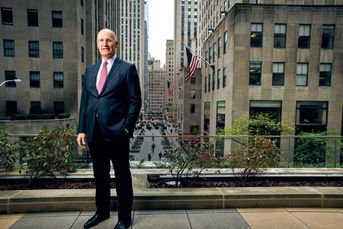Tiger Woods, CEO pay and we mere mortals
The public's seemingly endless fascination with the woes of Tiger Woods is evidence of the human penchant to create gods of men — and then pillory our creations, once we realize they're only human.
The public’s seemingly endless fascination with the woes of Tiger Woods is evidence of the human penchant to create gods of men — and then pillory our creations, once we realize they’re only human.
Woods was the perfect candidate for deification. A prodigy on the links since toddlerhood, he emerged as the world’s uber-golfer while barely out of his teens. His youth, vigor and multi-racial background added pizzazz to a sport whose principal color comes in the form of pink pants and lime green shirts. (Ever notice that golf is the only televised sport where the announcers whisper?)
So we made Tiger a god and Corporate America made their offerings in the form of endorsements. Maybe there’s some magical way that Tiger’s aura benefited Accenture, the faceless consulting firm, or helped Buick drive down the average age of its owners from 58 to 57, but I doubt there was ever any measurable value in Tiger’s endorsements. The hundreds of millions of dollars provided more of a religious experience.
Anyway, all that is now disappearing, as we discover that Tiger suffered from a problem that doesn’t afflict celestial beings: keeping one’s zipper in place. Tiger’s exploits brought him back to the world of mortals with a crashing thud. And now we’re all gloating because, hey, Tiger thought he was so great and now we know he wasn’t.
Well, the joke’s on us for making him a god in the first place.
We do the same thing with our CEOs. We plaster their faces on the cover of magazines, sit enthralled at their feet as they blather inanities about leadership and management, and buy their ghostwritten books that are packages of baloney. We swallow the fiction that they are responsible for the success of multibillion-dollar enterprises, largely, I believe, because humans have an innate tendency to revere authority.
A report in yesterday’s Wall Street Journal confirms that it’s time we snapped out of our CEO awe.
According to research done by the Journal, top executives at some of the nation’s largest companies (Comcast, McKesson, Limited Brands, Wal-Mart, Bank of New York Mellon and Honeywell) received guaranteed returns on their deferred-compensation accounts in 2008 — well north of 6% in most cases — while employees in the same companies were losing 18% to 31% in their 401(k) plans. And that’s on top of the huge salaries, bonuses, options, perks, other retirement goodies and corporate plane rides they enjoy.
What kind of nonsense are we tolerating? CEOs are just employees (i.e., labor) like everyone else. They’re not owners and certainly not gods. And just like everyone else on the bell curve of life, only a few CEOs are great; most are in the middle. Their talents are not so rare, and if we outgrew our childish longing for an omnipotent corporate daddy, we could find many more competent CEOs at reasonable prices.
The danger in putting CEOs on a pedestal is that their piggish compensation and kleptocratic style of corporate governance are eroding the moral underpinnings of capitalism. Through our direct and indirect holdings of equities, after all, we’re the capitalists. If we don’t want Washington to do a Mrs. Woods and whack CEOs over the head, let’s wake up and tell our overpaid CEOs that we’re the boss.
Learn more about reprints and licensing for this article.







